Kate Bowler: When we talk about love, we’re usually handed the polished version, the kind that fits neatly inside a Valentine’s Day card or a romantic comedy montage. But what happens when love walks us right into the fire? What if the person you love most gets sick and you’re left holding all the impossibilities, the diagnoses, the kids, the paperwork, the grief that starts long before the end? This is Everything Happens, and I’m Kate Bowler. Today’s conversation is with writer Stacey Heale. Her husband Greg was an artist and musician. They had a toddler and a brand new baby. Life should have just been starting. And then her husband was diagnosed with terminal cancer. And suddenly, Stacey is thrust into the unthinkable. She writes about this in a gorgeous pulls-no-punches memoir called Now IsNnot the Time for Flowers. Today I get to ask her about what it meant to love him through the end of his life, and then somehow keep living in the wreckage. This is a story about the invisible labor of caregiving, the loneliness of anticipatory grief, but the strange, bright clarity that can come in our most awful moments. She is funny and fierce and achingly honest. And somehow in this conversation, we decided that Twilight, yes, the old movie about vampires is the perfect analogy for soulmates. So yeah, you’re going to love her. Here it goes. Who was your husband when you met?
Stacey Heale: Oh my god what a question. My husband Greg was a very beautiful like elfin man. It’s really hard to describe. He had bleach, blonde, messy hair and he had this voice, oh this voice that was like, that kind of could switch from being this really falsetto little elf and then would be really growly the next and he was so funny. I knew of him and I knew that he was someone who was the polar opposite to me. I was the good time girl who was always out always had to pack my toothbrush in my bag for whoever’s house I was going to stay with.
Kate: I like that. You’re like, I’ll be needing you later
Stacey: I had to possibly whiz through town on the way back the next morning to go and buy some underwear, some clean underwear for the day. And he he was someone who was very much into his own company. He wanted to sit and read Proust so he read books like Finnegan’s Wake that you actually have to have another book that you read side by side to understand how to read it. For me, that is a no. So that was who he was. There was a really great picture of him backstage at Top of the Pops. Do you know Top of the Pops?
Kate: Explain it, but I’ve heard of it.
Stacey: Oh, Top of The Pops was a legendary TV show that was live music. So every week it would be who’s in the charts. It was this big, big deal. He was on Top of the Pops a couple of times with his band Delays. There is a picture of him backstage in the green room. He’s got big headphones on and he’s sat in a corner reading a book called A Thousand Books to Read Before You Die and I saw that and was like, who’s there? Who’s on the show with you? He was like oh I don’t remember. I’m like that is who you are in a nutshell. You’re on Top the Pops and you’re reading a book. I don’t understand, but yeah, that’s, that is, it’s interesting, isn’t it? When someone dies, it is interesting to think that I can say to you, oh, that’s who he was, but that’s who he is in this tiny corner of that day. Actually, he was a billion things. He was loads of things that I knew and he was loads of things I didn’t know at all because even the person you’re closest to doesn’t know all of the sides of you because you’re different, you’re bringing different things, different colors and textures to different people. And I like that. I like that, that we don’t get to know all the different sides of each other.
Kate: Kind of reminds me of the definition of nostalgia is an unaltered past, like a brighter past. Like a past that pulls us back always. And you know, just as a historian, we always have to like war against nostalgia of any kind. But like, the sweetness of love, like when we love someone where we can’t access new parts of them, I imagine that the temptation to free somebody in time is really strong.
Stacey: I try really actively to not do that and even still, I can feel myself doing it. Because as time goes on and you just don’t have that presence of someone right next to you kind of fizzing with their atoms and saying new things and bringing new things into the world, into the conversation, you have what’s left. And so then you’re starting to kind of piece things together with the finality of all of the different things that you have, a beginning and an end. But actually that’s not all of pieces because they’re just my pieces of that person.
Kate: I tried to do that with a, like I wrote a memoir when I really thought it was my last year to live. And when I, at first, when I looked back on it, I felt kind of sad that I wasn’t exactly, I wasn’t even still the person I was when I wrote that book.
Stacey: Did you feel that at the end when you, after you finished writing it?
Kate: I guess I was so grateful to have written it that I felt, I felt the gift of it so intensely that I just thought like, good for me, I wrote that mostly in the hospital. Good for me. But then after, almost immediately, I mean, I don’t know. You just keep living, and then you look back on what you’ve just done and you realize, oh no, that’s a time capsule..
Stacey: Absolutely. Do you know, a lot of people said to me when I was talking about writing a book, they said, do you think that this is the right thing to do because you’re going to be writing from the wound and not the scar, and the wound is too visceral, and actually maybe there’ll be emotions there that might be difficult to write about? Maybe anger, rage, jealousy, or emotions that come up when you’re kind of in the thick of it. I was really interested by that that people said that to me.
Kate: I hate that advice.
Stacey: Me too because I was like this is what I needed. I don’t need the rose-tinted version from 10 years away looking back through binoculars into the past when everything subsided. And you can’t really, you have solidified. It’s kind of, it’s calcified. Your stories start to get edges over time. And even though I try really actively to not do that, I can feel it. I can feel it happening around me and even in the stories that I tell my children even. And I-.
Kate: Maybe I would scar differently if I had a chance to let it heal differently.
Stacey: Oh my God, yeah. Well, it’s a bit like when you break a bone and it sets in the wrong place and then you kind of carry on regardless. It sets and then you’re forever with this bone that’s set out out of joint. And so I ignored all of that, ignored it and just thought this is the real stuff. But, and I thought this, when people said that to me, it’s got, that’s got nothing to do with me. That’s got something to do with you because actually, and that’s why we don’t talk about all this stuff, because it’s too uncomfortable. It’s too visceral, and it’s so much easier when we can talk from the scar. I read something recently about talking about mental health and about talking about how mental health is a lot more acceptable that people talk about it more openly, but only in the terms of it being in the past, of saying, when my mental health was bad, not as in, I’m currently in a real crisis. That’s still not okay. We like a 10-mile view of anything difficult.
Kate: We’re going to be right back after a break to hear from our sponsors. Don’t go anywhere. You have a, well, there’s no such thing as soulmates. Tell me about this wonderful, I think, fabulously countercultural view on finding somebody and falling in love, and then declaring that they are not your soulmates.
Stacey: Yeah, it was something that I think happened over time. I think I did believe in Soulmates when I was younger because I think was this dreamy, romantic, idealistic child. And I think every relationship I had as a teenager and then a young woman, I think that got crushed out of me just through some really horrible things and also just some very mundane normal relationship things to the point where I think I met Greg when I was 26 and I think I had that conversation with him maybe in my early 30s or no that’s not true no, mid thirties and I thought there was something still so romantic about the idea of saying, I don’t believe in soulmates, but I believe in this, that the idea that we are somehow ordained to-
Kate: I didn’t have to choose you, I’m choosing you now!
Stacey: Yeah, it just it just felt like the most unromantic version of love to say there is one person. You just need to be very hopeful that you live in the same country or just part of the world. Hopefully you’re not 70 years older, because that’s weird.
Kate: Well, that’s actually the movie Twilight.
Stacey: Do you know what? I was actually, I’m so thrilled you’ve said that. That’s why we’re friends because I was just thinking.
Kate: Edward was much older than Bella.
Stacey: And also it’s a bit like when Jacob is in love with their newborn child. That’s his soulmate, a newborn baby. Do you know what? This is, this is a PhD, waiting to happen, the dissection of love and soulmates through modern film.
Kate: Great, great films.
Stacey: Yeah. So soulmates, I just thought was just a nonsense and the least romantic thing I could think of, of how people end up in love. And I think it’s really, it’s a trap. I feel like it’s trap in that it keeps you hooked to an idea. And also, then if people are a dick to you, it’s this noose around your neck, which is but you are my soulmate and it’s, um, I think that’s very complicated. It’s very complicated.
Kate: It’s like announcing that you’ve already been spiritually married and you’re like, I don’t remember going through that ceremony.
Stacey: Yeah, absolutely. And also it made me think about other past relationships. We are not in a culture that you get together with someone when you’re 18 and then you get married and then that’s it. You might have different relationships and I find it really difficult to think about that all of those had not much to offer in that sense. It feels confusing because then I was thinking you’d have to decide who your soulmate was surely on the last day of your life because as I said to Greg on that day, the fateful day about soulmates, I was saying what happens if your soul mate leaves you and says I don’t love you anymore or I’m in love with someone else or what if they die? Does that mean that that’s that then? For the person who’s still living, that’s your quota of love? Bizarrely, very bizarrely, it was two or three days later that Greg was told he had incurable cancer and that he was going to die. It was so weird. So weird.
Kate: Was he just like a naturally anxious person before, or what was the relationship he had between worrying about being sick and being actually sick?
Stacey: He worried a lot about being sick. He had OCD that he talked about very publicly as well when he was interviewed with his band. He wrote songs about it even.
Kate: For people who don’t know what, I mean I’m sure OCD looks like many things, but what would that look like?
Stacey: Yeah, OCD, I think has a really strong branding of being all about cleanliness and order. So people think it’s about washing your hands a hundred times a day or making sure that all your cans line up neatly in a cupboard. But a side of OCD that people don’t know is intrusive thoughts and and I don’t mean intrusive thoughts like you know, you might go to bed and you might think about, oh God, I think I might’ve been rude to my boss today. And that plays over in your head. I don’t mean that. I mean, a never ending constant reel of voices telling you things like, you are a murderer. That’s not something that Greg felt, but these are the kinds of things that people think that you could be on a train station and be thinking, I could kill everybody here. I could run along and I could push everybody in front of a train on the tracks. And one of the ways of these intrusive thoughts work with OCD is to believe that there is something terminally wrong with you. And weirdly, he picked the wrong one in that he had convinced himself that he had AIDS. And it is a very, very common thing for people with OCD to believe. Because it’s extreme. There’s something I read about OCD that said, thinking that you have AIDS and thinking that are a pedophile, are the Lennon and McCartney of OCD which I thought was the most unbelievable, but true thing. This is how it manifests in people in a, again, and it’s so shameful that people don’t ever want to talk about it. And unfortunately for Greg, the thing that he was afraid of was not the thing that was inside him slowly killing him.
Kate: You had to kind of take on not talking about it, it sounds like as part of your role as evolving caretaker. Some people enter into illness with like a, I’m gonna learn every single thing I can, I’m going to be an expert, I was like that. But a lot of other people have a really, they want a barrier between them and all of the information. And it sounds you had embody that barrier.
Stacey: I think I realized quite quickly that there is a huge divide across the board with everybody. People seem to sit in one camp or the other. There doesn’t seem to be much gray area with this. People want to absorb the internet in terms of learning to be an oncologist. I felt that I was studying for some kind of doctorate in oncology because I wanted to learn how to cure cancer, basically. And I think that extremity really buttered up hard against Greg’s real need to not know anything about it. And that’s, and I don’t mean that in a one was right, one was wrong. I think that I found it very difficult, but I never thought I was right. Do you, do you know what I mean?
Kate: That’s just, that’s also very loving. I mean, that, that so, there’s so much compassion when you can like, toggle your brain between somebody else’s worldview though.
Stacey: I hear what you’re saying, but I feel like… I was also angry. I think you can be multiple things all at once and I think I could understand why you would not want to know anything about such a revolting truth about your own life, especially because we had two babies and I think the truth of it was so outrageous.
Kate: That makes sense. When I thought about my son, I would always think about the phrase, like, those are my impossible thoughts. So when you say like, there’s a version that doesn’t require compassion where you’re just like, no, there’s a no in it. That that’s, that’s the, that’s like, there’s like a kickback to love, you know, that sounds like the real kickback where it’s like absolutely not.
Stacey: And I think when you’re the person who’s ill, there’s almost like this ripple effect of people from outside. So right outside is like your spouse or your children. And then outside of that is your immediate family, then extended family, then friends, colleagues, well-wishers. And I thing everyone has to hold up the people on the inside of their sphere. And I think the person who’s ill is just thinking about themselves. And that is exactly how it needs to be. But I think everyone else who’s kind of like holding the pressure up from outside, that can be really complicated. I think it was also really complicated because he was my partner. Say if one of my children was ill, I think it would be a different situation. And I imagine the dynamic would be different again if it was one of my parents. I’ve not been in either of those situations, but I think when someone’s supposed to be on an even playing field as you, and the balance starts to tip in lots of different ways, the equilibrium becomes confused. And while there is that love, that instinct to protect, and I did, I had this instinct in me to think that I could shield him from everything. If I couldn’t cure cancer, which I truly believed I could at the beginning, if I couldn t do that, at least I could protect him from the truth of what was happening and what was coming and I think I was naive about what level of collateral damage that would do. I think in terms of both me personally and also between us.
Kate: Is the first casualty just an immediate loneliness then? I remember feeling like there was a separation right away and it was just plexiglass and everybody was on one side.
Stacey: I think Greg felt like that. I think that’s very usual, I think, to suddenly feel so othered, really different. I talked in my book about how I saw people act towards him. And that it looked like how people act towards dolphins. If they go and see dolphins swim, it’s this kind of delight at seeing someone as in like, oh my God, here’s the almost dead man. Here’s this joy of being in the presence of that person. And there’s also this hint pity which is, oh my god you’re behind that glass. You’re the dolphin that can’t get out.
Kate: Yeah, there’s the exactly there’s that and there’s the accidental tiny slight arrogance of the it’s not me.
Stacey: Oh yeah, the, thank fuck it’s not me. Yeah. Absolutely. Yeah, and I saw that again and again with how people treated Greg. And I don’t know if loneliness was actually my first, my first feeling. I think it was, it was a split. I felt like in one camp, I had to be the perennial cheerleader. And I had to be a doctor and I had to be constantly positive, constantly use certain words. And then on the other side, I’m talking about how I’m going to survive as a solo parent. I’m talking to people about money and my house and what I’m going to do. And i just feel like I’m split down the middle and having these different conversations with different people.
Kate: Yeah and the future, the oneself planning, organizing, probably being honest, like be the reporter, I guess. And then the invulnerable and needless. I guess the sucky part is just that both versions have no needs.
Stacey: I think I didn’t let myself think about that person. Every now and again, I would let myself break a little bit. Sometimes when I was with my mum, I think, I let myself almost be the little girl and be looked after. And it is so guttural, it would be things like I wanted to go to bed. And I wanted my mum to come and sit next to me and hold my hand or stroke my hair and just let me fall asleep in the afternoon. Or sit on her sofa with a blanket over me and her bring me a sandwich while I watched some trashy TV. Just to not be the adult. I just didn’t want the responsibility of having two children who still needed to get up and have breakfast. Go to school. Deal with all the kind of the normal things of having children and then deal with the kind of life or death things at a hospital. It was so confusing of having babies. It’s all about the beginning of life and then being in these meetings where it’s all about the end of life. And again, it was that split in me of truth, denial, life, death, and having to play these roles very often in the same hour. And I think I’m still reeling from that actually, like two and a half years later.
Kate: We get a lot of like lovely people who go through really difficult times at the Everything Happens project and they’ll let us know about their experiences. And some of the people who write in who’ve had, especially like the suffering person who really didn’t want to be the one who did any of the reporting or any of the telling or, and then in that way, any of the parenting around the truth of their illness. The endless even just like worrying about how they’re supposed to be future managing that stuff. Like how’s a future self going to even know what impact it’s going to have, but it sounds like that split self is this like it’s, it splits down you and then it splits the whole family.
Stacey: It’s hard to know because, again, it’s that thing of people don’t talk about it. So I wonder, I wonder how different families deal with the same thing. I remember when Greg was really towards the end of his life and he was in a hospice, I remember sitting in the family area kind of just in stunned silence really. And there was a family next to me and they were Googling what does the death rattle sound like and playing it. And I thought to myself, you guys are very slow on the uptake. I’ve already done that. And I was like, wow, are we all just doing the same things in our own private hells in these moments?
Kate: Oh my gosh, that’s such a good description, Stacey. Are we all just stuck in our own private hells googling the worst of our, of not our imagination, of our anticipation of this path we’re supposed to walk down that we’re not even sure how to even imagine what we’re suppose to be scared of? When you were describing like, well I thought the worst day of my life, like I thought every worst thing wasn’t even necessarily the worst thing.
Stacey: Oh yeah, yeah, well it’s a bit like your best day is probably not your best day or what you think it is when people talk about their wedding day. My best day is probably, if I think back to it, maybe like a Tuesday after school with my best friends when I was 16, when we would go back to a friend’s house and do dance routines and make stupid and tape ourselves making stupid songs. That’s possibly my best day. Maybe, or maybe I haven’t even had it yet, but it’s the same about worst days. You wonder well, oh, this is it. This has to be the worst day. And then it’s not, if I think about my worst days, it has been just an arbitrary evening, probably alone with my girls after Greg died. When everyone’s gone back to their lives, which they absolutely needed to. That’s what happens. Um, but it means then you’re left at the epicenter on your own. And I was left with two children who were both losing their minds whilst I’m also losing my mind and really not knowing how to deal with it. Those are my real worst moments. When I think about real grief, it wasn’t necessarily say at Greg’s funeral even, it might be when I burst into tears at the supermarket, when I saw the noodles that he liked that I’d bought every week for like 15 years. And now I never liked them, so I’m never buying them again. And like the punch of that of like, wow. That’s the end, that almost hits harder because you’re not expecting it. Those little tiny, innocuous moments that might be the very worst moments of your life.
Kate: We’re going to take a quick break to tell you about the sponsors of this show. We’ll be right back. Stacy, if we could rescue anybody from the worst parts of their private hell, is there any like, and I know you and I are so anti-aphorism and anti-advice and anti maxim. I know we only believe in a couple little things and that is always how I know that I have my people. Like there’s really, and there’s a precision to your language too, where you won’t say things that aren’t true. And like, which is bumper cars, which is how I knew you’re telling me the truth, which was so lovely to listen to. But there’s only a couple of precious true bits of advice we can tell people. I wonder what things you would tell people if they were, that would spare them a little.
Stacey: Things change, things change and again and again and again, and again forever, forever and ever, way after we’re gone. I think hope is tricky if you have been in the cancer world because I think it can take a turn down a side street of denial. And maybe that could be to do with the position I held in that if you are the person who’s going to be left then hope is possibly a luxury you can’t afford. Depending on what you mean by hope, I suppose. But I think that there is hope in change. And to know that when you are on those rocky seas that feel so unbearable, literally unbearable to even breathe into another second, that it will change. And you just have to hold on to that life raft of change to know that you will sail out of that. But on the flip side to remember as well, when you’re in those happy, sitting with the flowers times, this changes. There isn’t some destination that you get to where everything is fine. That actually this change, if you see it in a certain way, that energy is what can keep you afloat in both the good and the bad times. And depending on what that looks like, you can either just hold on tight or sunbathe on it.
Kate: Do you feel like in the aftermath of the aftermath of the aftermath, which is just how the life goes, that you’ve managed to reassemble the two, the feeling of the two halfness of the split self? Do you kind of feel like one person again?
Stacey: I think so. I think that that is a time thing. It is a time, thing. Cause it needs time, a bit like a scar, a wound and a scar. It needs that time to knit back together. And I think the scar will always be there because it is such a dramatic thing to go through. Yeah, it’s not an open wound in me, which I most certainly felt.
Kate: I don’t know anyone who believes in love more than the people who’ve been hurt and changed by it.
Stacey: That’s true. I remember, I remember when we were told that Greg would die, I remember the most unbelievable feeling that it almost felt everything inside me. It was everything cleared and it, I just had this understanding of love. None of this shit matters. We have created these stupid problems and these ridiculous things to focus on. And while we’re doing all of that, this thing over here, that’s all that matters, which is love and people. The people that we love. That’s all that matters and it was the clearest understanding. And it’s weird though because time does make things fuzzy. And even now, I’m earlier today getting stressed about life admin for passports for my children, going bananas about the stuff that’s in my house, all the rubbish I’ve got and all the clothes I’ve got, the shoes. And it’s this kind of man-made world that I’ve created. So it doesn’t just because I’ve seen that, I have seen this other side of life doesn’t mean that I don’t get drawn back in by the nonsense of it all.
Kate: I think I do think that to myself sometimes where I’m like, I think that used to be a better person. When I was sicker, it’s possible I had an epiphany. Yeah, I was really clear on the good stuff.
Stacey: Yeah, I read something once that talked about widows in certain cultures are seen as the spiritual leaders that they walk someone up to the gates of heaven and so they’re as close to death as anybody can be without dying and then they have to walk back and so that there’s a time period after their partner dies because they have been so close to the end or wherever that they still have the glow about them so they are seen to go to them as as a spiritual leader for advice and they can heal people. And I think I felt that. I felt quite untouchable. And I missed that. I missed that about early grief, where you feel nothing can hurt me because of where you have literally just been. And then I felt it fade. Did you feel that fade?
Kate: When you said the glow. I was like, oh yeah. I thought it was like bright clarity and it was just technicolor and it’s so beautiful. And then I became a garbage person. Like I could hear it the first time I was gossiping about faculty members and someone was telling me about their research and I was, didn’t care. Not like an existential didn’t care. I don’t care about you. I was like, wait a minute, I don’t care about you, I’m just being a bad person. Oh wait, I’m a bad person again.
Stacey: I was thinking that about screenshotting pictures of dresses at the Met Gala, sending it to people and being like, from the pit of my bed, me kind of in dirty stained pajamas, hate it, hate all this. That’s who I am at my core.
Kate: Well, whether it’s being someone who also cherishes the inner workings of the movie Twilight to the person who really does have a glow about them, my dear, it’s a joy to know you. Thank you so much for doing this with me.
Stacey: Thank you, Kate. Right back at you.
Kate: Grief is never tidy. And if you are in the fog of it right now, I so wish that I could give you some secret fast track back to normal. There’s no right way to do this. There’s not right way for you to carry loss. There’s just only your way. And sometimes the best we can do is be honest about what we’re holding, even when it’s heavy, even when splits us in two. The part of this conversation I will carry with me forever is when Stacey said that her worst days weren’t the ones she expected. Grief is in all these tiny innocuous moments. So, my dear, if you’re having one of those unexpected worst days, here is a blessing for the tiny casualties. Blessed are you, ambushed by grief in an ordinary moment. You who reach for the phone to send that joke. You who set out two plates without thinking. You who wait for the sound of their car in the driveway, forgetting, even for a second. For these are the habits of love. Blessed are the lives that go unwitnessed, the shoes still by the door, the song you can’t yet listen to, the emergency contact you won’t update. Blessed are the moments that pass with someone missing, the birthdays and dentist appointments. The school plays with an empty seat, the ordinary Tuesdays and Wednesdays and Thursdays. Blessed are you who carry both love and sorrow, without a map, without a timeline, only the pang of what should have been. So bless you in your ordinary ache, in the quiet catastrophes no one else sees, in the thousand small things that say, we were here together. So my dears, if you’re in that place, the middle of a love that can never actually end, I hope this conversation felt like good company. No silver linings, just someone who’s been there. And maybe that’s enough for today. Love and grief really are in the tiny moments, and if you want to share yours, we would love to hear it. Find me online @katecbowler or call us and leave a voicemail. I’m at 919-322-8731. Hey, we know that podcast listening is often a solo experience, but if this episode made you think of someone, or if you resonated with what Stacey described and want someone else to know what you’re carrying, send this episode to someone you trust. The full episode is available to watch on YouTube. If that’s easier, we’ll link it in the show notes. And a big thank you to our funding partners, Lilly Endowment, the Duke Endowment and Duke Divinity School. And to the team behind everything happening and Everything Happens. Jess Richie, Harriet Putman, Keith Weston, Baiz Hoen, Gwen Heginbotham, Brenda Thompson, Iris Greene, Hailie Durrett, Anne Herring, Hope Anderson, Kristen Balzer, Elia Zario, Catherine Smith and Megan Crunkleton. Thank you. This is Everything Happens with me, Kate Bowler.
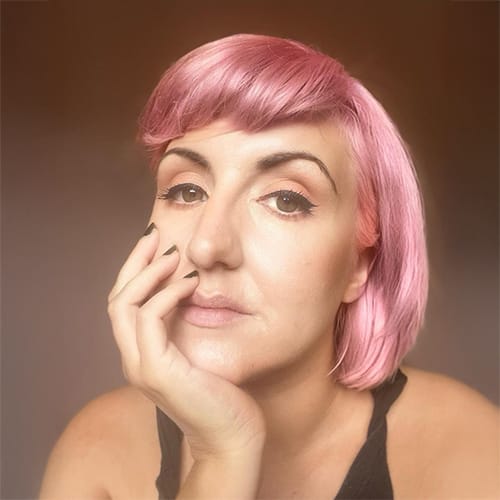


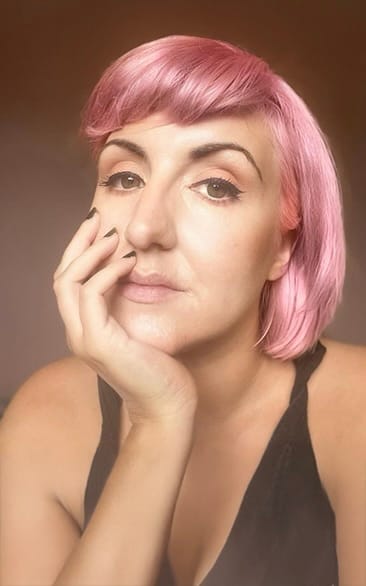









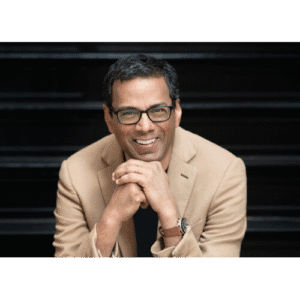
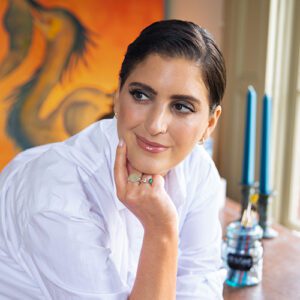

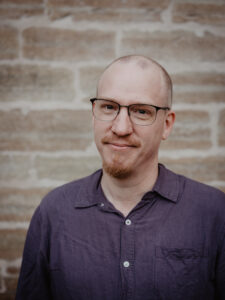
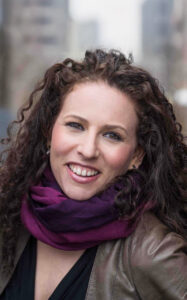
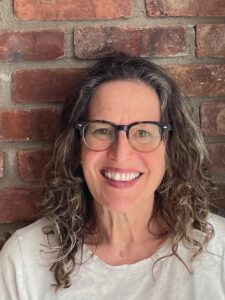

Leave a Reply